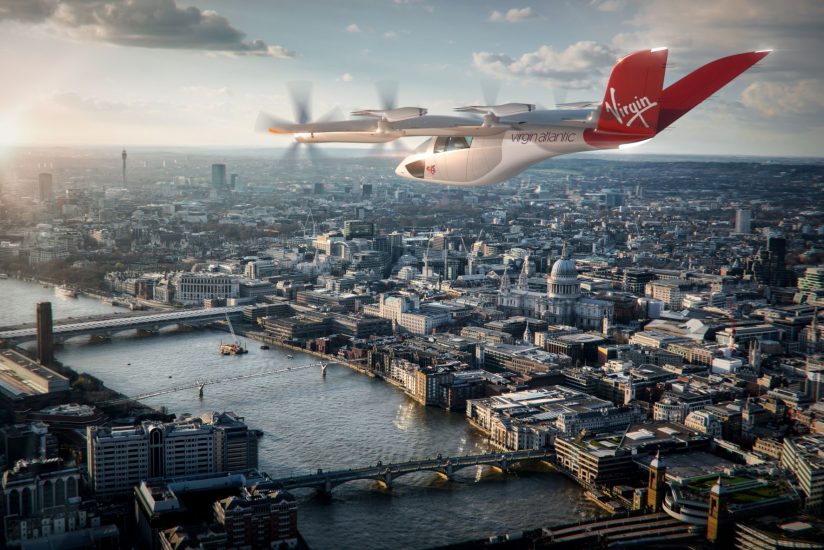Vertical Aerospace, Virgin Atlantic, Atkins, Skyports and NATS, along with Connected Places Catapult and leading academic institutions Cranfield University and WMG, University of Warwick, today announced the creation of the Advanced Mobility Ecosystem Consortium. Together, the organisations will develop key technology and infrastructure in a project that will significantly accelerate the introduction of advanced aerial mobility (AAM) AAM in the UK.
According to a consortium press release:
“The Consortium has been awarded a UKP9.5 million grant by the UK Government’s Future Flight Challenge to develop the essential building blocks of a viable AAM ecosystem that has the potential to be progressed into full commercial operations. This first-of-a-kind ecosystem will accelerate AAM in the UK by creating and testing technological developments in aircraft electrification, airspace management, ground infrastructure, operational procedures and the systems and supporting business cases required to implement a new model of aerial passenger transport in the UK.
“The project will demonstrate the feasibility of a UK AAM ecosystem using Vertical Aerospace’s emission-free VX4 eVTOL aircraft, operated by Virgin Atlantic. Two physical flights will take place between Bristol Airport to an airfield in South West England, and between London Heathrow Airport and the Living Lab vertiport. A third simulation flight will demonstrate urban connectivity between London City and Bristol airports.
“These demonstrations will explore key aspects of the passenger journey, vehicle operation, airspace navigation, ground charging, security provision and local stakeholder engagement. Heathrow Airport, Bristol Airport, Skyports and NATS, the UK’s national air navigation service provider, will collaborate to deliver the physical and digital infrastructure to facilitate these missions through a complex airspace environment. The two-year project will be overseen by aerospace engineering experts Atkins as consortium lead.
The UK Government Future Flight Challenge forecast that the introduction of AAM services will increase UK gross domestic product (GDP) by 1.8% by 2030 and support the government’s Levelling Up and Net Zero agendas, reflecting the productivity and wider economic benefits of increased connectivity.
Gary Cutts, Future Flight Challenge Director at UK Research and Innovation said: “Our roadmap sets out how air taxis could be in use in the UK by 2030, but a lot needs to occur for that to happen. By bringing technical developments from across the aviation industry together into one network, and undertaking early demonstration in the real-world, the Advanced Mobility Ecosystem Consortium could accelerate the timescale for AAM introduction by years. This project could revolutionise travel, not just in the UK but around the world.”
Skyports will build and operate a “Living Lab” vertiport to create a testbed for ground, passenger and air operations for the project duration. This centre of innovation will help to materially accelerate the development of AAM services.




